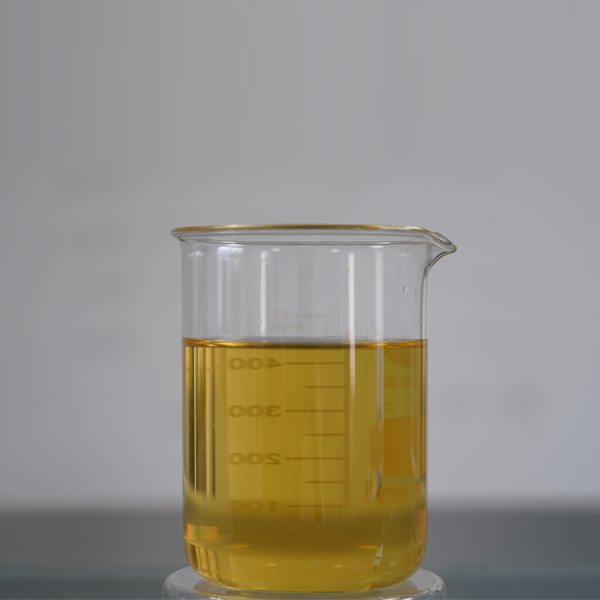
News
נוב . 21, 2024 09:22 Back to list
potassium citrate chelating agent
Potassium Citrate A Versatile Chelating Agent
Potassium citrate is a compound that has gained prominence in various fields, particularly in medicine and agriculture, due to its properties as a chelating agent. As a potassium salt of citric acid, it holds significant potential in binding metal ions and enhancing their solubility, making it a valuable addition in numerous applications. Understanding its mechanisms and benefits can shed light on its role as a chelating agent.
What is Chelation?
Before diving into the specifics of potassium citrate, it is crucial to understand the concept of chelation. Chelation refers to the process by which a chelating agent binds to metal ions, forming a stable complex that can affect the bioavailability and toxicity of these metals. This interaction is particularly important in biological systems, where the controlled availability of metals like iron, magnesium, and calcium can influence metabolic activities and health outcomes. Chelating agents can detoxify harmful metals, facilitate nutrient absorption, and prevent the precipitation of insoluble compounds.
Potassium Citrate Structure and Properties
Potassium citrate is a trivalent salt with the chemical formula K3C6H5O7. This organic compound consists of three potassium ions bonded with one citrate ion, which is derived from citric acid. Due to its ionic nature, potassium citrate is highly soluble in water, making it an effective chelating agent in aqueous environments.
The chelating action of potassium citrate primarily occurs through the carboxyl and hydroxyl groups present in its citrate structure. These functional groups can form coordinate covalent bonds with metal cations, stabilizing them and preventing them from participating in undesired chemical reactions. This ability to bind metals not only enhances their solubility but also aids in the transportation and utilization of essential trace elements in various biological systems.
Applications in Medicine
One of the most critical applications of potassium citrate is in medicine. It is widely used to manage urinary disorders, especially in conditions like kidney stones and gout. Potassium citrate helps to alkalinize the urine, reducing the acidity that can lead to the formation of uric acid and calcium oxalate stones. By chelating calcium and other minerals, it facilitates their excretion and reduces the chances of crystal formation.
potassium citrate chelating agent

Moreover, potassium citrate is also known for its role in metabolic acidosis management. It helps to replenish bicarbonate levels in the blood, vital for maintaining acid-base balance. Patients suffering from chronic kidney disease or those undergoing dialysis can benefit from potassium citrate supplementation, as it aids in managing hyperkalemia (elevated potassium levels) and metabolic imbalances.
Applications in Agriculture
Beyond its medical uses, potassium citrate serves as an effective chelating agent in agriculture. It helps in improving nutrient uptake in plants, particularly in soils with high metal ion concentration. By buffering soil pH and binding to essential nutrients like iron, zinc, and manganese, potassium citrate enhances their bioavailability, promoting healthier plant growth.
Additionally, its role as a natural fertilizer makes it a sustainable alternative in organic farming. By chelating nutrients, potassium citrate aids in reducing soil nutrient runoff, contributing to environmental conservation while maximizing crop yield.
Safety and Environmental Impact
Potassium citrate is generally recognized as safe (GRAS) by regulatory authorities, making it suitable for various applications without posing significant health risks when used appropriately. Its natural origin and biodegradability add to its appeal in both medical and agricultural fields.
Moreover, as concerns about environmental degradation rise, using potassium citrate as a chelating agent can be a more sustainable choice compared to synthetic alternatives. Its ability to enhance nutrient efficiency can lead to reduced fertilizer applications, minimizing environmental pollution and preserving soil health.
Conclusion
Potassium citrate stands out as a versatile chelating agent with significant applications in both medical and agricultural domains. Its capacity to bind metal ions enhances solubility and bioavailability, which can lead to improved health outcomes and plant growth. As research progresses, the understanding of potassium citrate's mechanisms and benefits continues to expand, highlighting its importance in promoting sustainable practices and advancing health solutions. In a world increasingly focused on sustainability and health, potassium citrate’s role as a chelating agent will likely become even more vital in the years to come.
-
Polyaspartic Acid Salts in Agricultural Fertilizers: A Sustainable Solution
NewsJul.21,2025
-
OEM Chelating Agent Preservative Supplier & Manufacturer High-Quality Customized Solutions
NewsJul.08,2025
-
OEM Potassium Chelating Agent Manufacturer - Custom Potassium Oxalate & Citrate Solutions
NewsJul.08,2025
-
OEM Pentasodium DTPA Chelating Agent Supplier & Manufacturer High Purity & Cost-Effective Solutions
NewsJul.08,2025
-
High-Efficiency Chelated Trace Elements Fertilizer Bulk Supplier & Manufacturer Quotes
NewsJul.07,2025
-
High Quality K Formation for a Chelating Agent – Reliable Manufacturer & Supplier
NewsJul.07,2025
